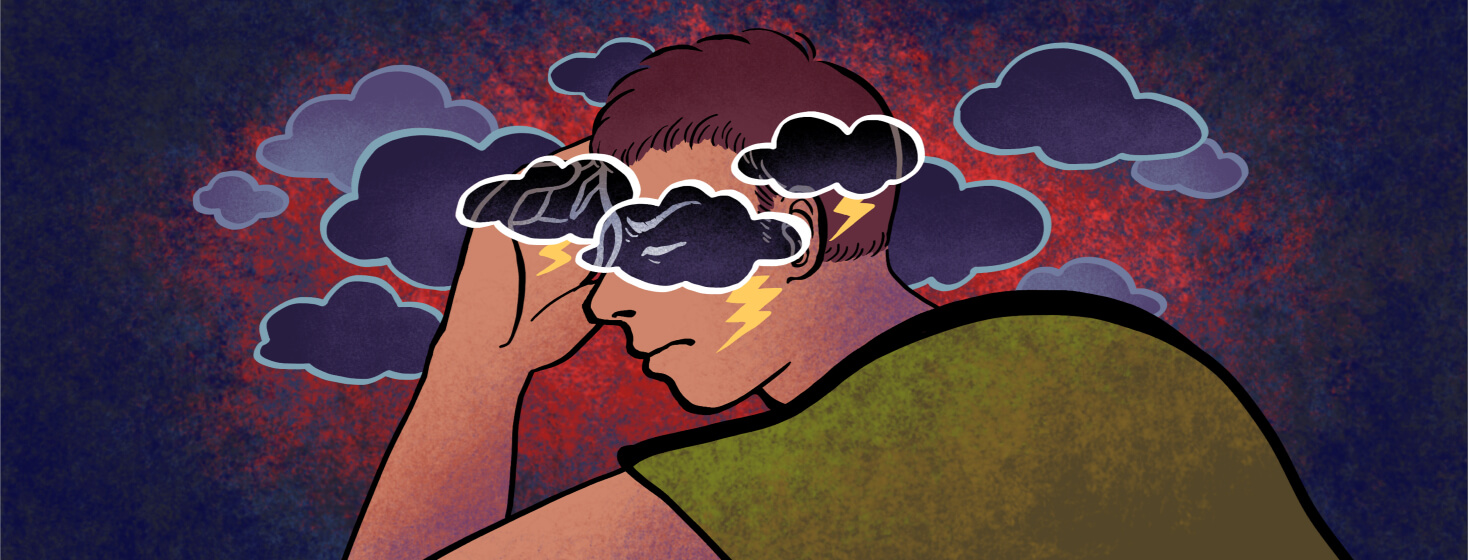My New Migraine: Did I Just Have A "Thunderclap Headache?"
"Help me," I called to my husband from the hallway. It was like a drummer felt the need to pound out his loud rhythm on my forehead — and then set his drum on fire. I'd never experienced an "instant migraine," and my pain shot up so high so fast that I needed help grabbing items from my migraine tool kit. What was happening?!
My typical warnings
As my husband (and even my 8-year-old) came to my rescue, I tried to think beyond the pain. In my normal migraine world, there were warnings. A warm ache would settle in my head, and then I might get super sleepy or even way too cranky. These were signs that my migraine was starting, so I always had a little time to take a hot shower, down some caffeine, or take my relief meds before my pain turned up to eleven. This fast onset was as unstoppable as Disney acquiring every major movie franchise. Still, I took my relief meds and hoped it would be enough to turn down the volume on my pain.
Managing an instant attack
"I can talk now," I told my husband many hours later.
My meds and cold packs had helped dissolve my discomfort, but they sure hadn't helped me understand why that migraine monster had come on so fast. I spent the rest of that Saturday resting and wondering if this was my new normal.
Was my migraine changing?
My migraines were always changing and evolving. Usually, though, their evolution was slower and somewhat predictable, like when my migraines shifted from lasting a couple of hours to a couple of days. The minutes added up slowly over several years, until one day, my pain was losing me days in a row. So, I did the one thing friends and family told me never to do when I was curious about a medical condition: Google it.
Was it a thunderclap headache?
My search yielded these two words — thunderclap headache. According to Mayo Clinic, "Thunderclap headaches live up to their name, striking suddenly like a clap of thunder. The pain of these severe headaches peaks within 60 seconds."1 More reading explained that, unlike a migraine, these present suddenly and are "extremely severe."2 After even more reading, I learned about "crash migraines," which were migraines that came on suddenly like a thunderclap headache, but there wasn't as much info on these.3 Then the Mayo Clinic closed out with, "Thunderclap headaches are uncommon, but they can warn of potentially life-threatening conditions…"1 And this is why I shouldn't Google. Now, I was nervous.
What did my neurologist say?
I contacted my neurologist - it seemed a better option than going with Dr. Google. I explained my "new migraine," and my doctor explained that I likely had too many triggers leading up to it, which had overloaded my system. He also reassured me there were steps to take to control these if they continued. So far, my doctor has proven himself correct, and I've only had this one new migraine. And I'm totally okay with that.

Join the conversation